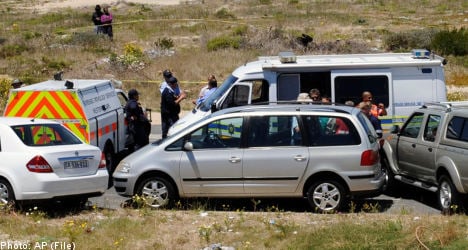Zola Tongo, 31, is the third man to be charged with the murder of 28-year-old Anni Dewani, robbery with aggravating circumstances and kidnapping, National Prosecuting Authority spokesman Eric Ntabazalila said.
“He is the driver of the vehicle, of the taxi,” he said. “He is suspected of being involved in these three charges and these two other guys.”
Tongo could turn state witness and his attorney has been in plea bargain discussions with the state since his arrest on Saturday.
“What it means is basically that he is working with the state, he is assisting in the investigation,” he said.
Dewani, a native of Mariestad in central Sweden, was killed after the taxi in which she was travelling with her British husband was hijacked on November 13.
Her husband Shrien Dewani was released unhurt on the outskirts of Cape Town but she was kidnapped. Her body was later found in an impoverished township neighbourhood.
Anni Dewani was also robbed of a Giorgio Armani ladies wristwatch, a white gold and diamond bracelet, a handbag and a Blackberry cellular telephone, the charge sheet states.
The honeymooners had dined in a seaside restaurant in a town outside Cape Town and were on their way back to the city when Anni Dewani asked to see township nightlife, media reported.
Tongo appeared alongside 25-year-old Mziwamadoda Qwabe on Monday and the case was postponed for a week.
The first accused is 23-year-old Xolile Mngeni who will again be in court on Thursday after his case was postponed last week as he did not have a lawyer.
The state has successfully applied for a photo blackout of the suspects until a police identification parade is held.
Police spokesman Frederick van Wyk said the line-up should take place this week.
“There’s no date for it but they will finalise it in the course of this week,” he said.
It was not certain when Shrien Dewani would return to Cape Town, he said.
“SAPS (South African Police Service) detectives are in contact with Mr. Dewani and at this stage they did not give any indication when he will be back in Cape Town,” he said.



 Please whitelist us to continue reading.
Please whitelist us to continue reading.
Member comments